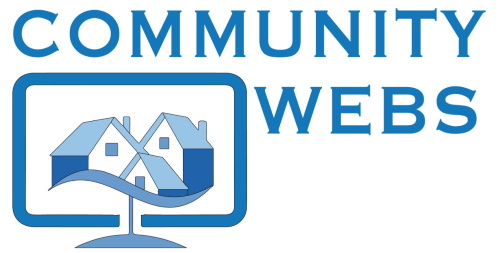
Community History Web Archiving Program Launches in Canada
June 16, 2021
Internet Archive Canada is thrilled to announce that Community Webs, the Internet Archive’s free community-based web archiving program, is now open to public libraries and other cultural heritage organizations in Canada. Community Webs is fully funded and administered by the Internet Archive. There is no cost to participating organizations.
Community Webs empowers public libraries and cultural heritage organizations to work with their communities to build community-focused web archives documenting local histories and underrepresented voices. The program offers free web archiving services and technical support via a multi-year subscription to Archive-It, as well as resources for networking, professional development and in support of scholarly research. Community Webs currently has over 100 participants from across the US and we are excited to be expanding into Canada. Some examples of what our current participants have been up to include:
- The Schomburg Center for Research in Black Culture @ NYPL web collections on the #Syllabus Movement and other aspects of the Black experience in the US
- Athens Regional Library System web collections on local contemporary art, music, literature and food culture, as well as local politics and community activism
- The East Baton Rouge Parish Library web collections on local Mardi Gras celebrations, police violence and demonstrations, and COVID-19.
To find out more about the program, visit the Community Webs website and view our program announcements and recent blog post. Canadian public libraries and cultural heritage organizations that apply now may be eligible to join our next cohort kicking off in late-Summer 2021.
The deadline for applications is August 2, 2021. Apply online today.
Have questions? Please reach out by emailing the Community Webs team at communitywebsinfo@archive.org. Interested in archiving and data services other than local history web collecting? Visit the Archive-It website.
(Via Internet Archive Canada)
Canadian Call for Applications
The Community Webs network invites public libraries and cultural heritage organizations from across Canada to apply to join its Community History Web Archiving program. Participants receive free web archiving and technical services, training, and professional development and networking opportunities for building community history web archives, especially collections documenting the lives of patrons and groups traditionally under-represented in the historical record.
About the Program
Local history archives have long served as vital resources for preserving the stories of communities. With many records now published on the web, the ability to preserve collections of online newspapers, local blogs, civic websites, social media, and other platforms is an increasingly important skill for librarians and other cultural heritage professionals in fulfilling their role as information custodians and community anchors. Locally-focused web archiving can also diversify the historical record and preserve the voices of those often excluded from the archive.
Community Webs enables community-focused local history web archiving by providing archiving and technology services, training, and cohort development to public libraries and cultural heritage organizations. Administered by Archive-It and the Web Archiving & Data Services group at the Internet Archive, the program currently includes 100 public libraries from across the United States, and we are looking to expand into Canada. Find out more about Community Webs at the program’s website or view recent program announcements.
Participants Receive
- Each participating organization will receive a guaranteed multi-year free subscription to the Archive-It web archiving service. This includes the ability to archive up to half a terabyte of web material each year (up to thousands of websites and millions of web pages or data). An Archive-It subscription includes tool-specific training, technical support, a public collections page on Archive-It.org, the ability to download archives created as part of the program, perpetual storage and access provided by the Internet Archive, and other features and services.
- Each participating organization will have access to additional Internet Archive non-profit services, such as digitization and digital preservation, either for free (as funding allows) or at or below actual cost.
- Each participant will receive training and educational resources related to digital collections, web archiving, digital preservation, and other topics, as well as access to a cohort community pursuing similar work and to networking spaces, events, and knowledge sharing platforms.
- Each participating organization will have the option to leverage program partnerships and integrations to include community web archives in other aggregators or access platforms beyond Internet Archive.
Eligibility
- The program is open to any public library or memory institution that is stewarding local history collections.
- Prior technical knowledge on web archiving, digital curation, or special collections is not required or expected. Training and skills development on these topics are provided.
- This program is open to public libraries and cultural heritage organizations of all sizes and locations. Our goal is to expand the types of institutions collecting web based content, so any libraries or cultural heritage organizations interested in exploring archiving the web to document local history are encouraged to apply.
Participation Overview
- Project activities averaging an hour or two hours a week in staff time.
- Attend 6-8 project-related online training events over the 2 years of the program.
- Participate in virtual and/or in-person Community Webs events.
- Opportunities to contribute to documentary materials, blogs, publications (articles or white papers) and other published reports.
- Participate in a cohort community via online forum, Slack group, meetings, calls, etc.
- For additional information, visit our FAQs or contact us with questions.
(Via Communitywebs)
Add a new comment